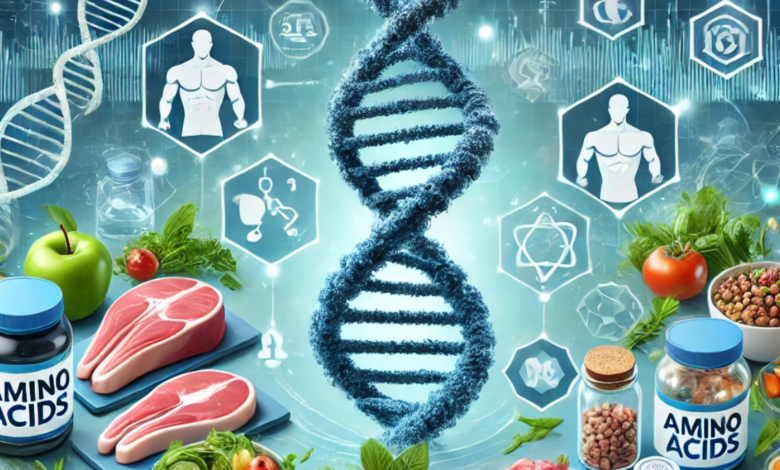Doctorhub360.com Amino Acids: The Essential Building Blocks of Life

Amino acids are one of the most crucial components of life, playing an essential role in building proteins, maintaining muscle health, and supporting various bodily functions. If you’ve been searching for reliable information on amino acids, Doctorhub360.com is your go-to resource. In this detailed guide, we will explore the significance of amino acids, their types, benefits, sources, and much more.
What Are Amino Acids?
Amino acids are organic compounds that combine to form proteins, which are vital for nearly every biological function. They consist of carbon, hydrogen, oxygen, and nitrogen, and serve as the fundamental building blocks of life.doctorhub360.com Without amino acids, the body wouldn’t be able to repair tissues, grow, or function properly.
There are 20 different amino acids that contribute to protein synthesis, each with unique properties and functions. Some are produced by the body,doctorhub360.com while others need to be obtained through diet. Understanding amino acids and their role can significantly impact your health and fitness journey.
Types of Amino Acids
Amino acids are classified into three main categories: essential, non-essential, and conditional. Each type has its own significance and function in the body.
Essential Amino Acids
Essential amino acids cannot be produced by the body and must be obtained through diet.doctorhub360.com There are nine essential amino acids:
- Histidine – Supports brain function and neurotransmitter activity.
- Isoleucine – Important for muscle metabolism and immune function.
- Leucine – Plays a crucial role in protein synthesis and muscle growth.
- Lysine – Supports immune function and helps the body absorb calcium.
- Methionine – Essential for metabolism and detoxification.
- Phenylalanine – Precursor for neurotransmitters like dopamine and adrenaline.
- Threonine – Supports collagen production and liver function.
- Tryptophan – Helps produce serotonin, a neurotransmitter that regulates mood.
- Valine – Aids muscle growth and energy production.
These amino acids must be sourced from protein-rich foods such as meat, fish, eggs, and legumes.
Non-Essential Amino Acids
Unlike essential amino acids, non-essential amino acids are naturally produced by the body. However, their role is just as important.
- Alanine – Helps in energy production and immune function.
- Asparagine – Plays a role in nervous system function.
- Aspartic Acid – Supports metabolism and cellular energy.
- Glutamic Acid – A neurotransmitter that supports cognitive function.
- Serine – Assists in brain function and metabolism.
Even though these amino acids are synthesized in the body, consuming a balanced diet helps maintain optimal levels.
Conditional Amino Acids
Conditional amino acids are usually non-essential but may become essential in times of illness, stress, or high physical demand.
- Arginine – Helps improve blood circulation and wound healing.
- Cysteine – Supports detoxification and antioxidant production.
- Glutamine – Crucial for gut health and immune function.
- Glycine – Aids in collagen production and muscle growth.
- Proline – Supports skin and joint health.
- Tyrosine – Precursor for hormones and neurotransmitters.
Why Are Amino Acids Important?
Amino acids play a vital role in maintaining overall health. Here’s why they are crucial:
Muscle Growth and Repair
Amino acids, particularly branched-chain amino acids (BCAAs) like leucine, isoleucine, and valine, are crucial for muscle repair and growth. Athletes and fitness enthusiasts often consume amino acid supplements to enhance muscle recovery and prevent fatigue.
Brain Function and Mental Health
Amino acids contribute to neurotransmitter production, which impacts mood, cognitive function, and stress levels. Tryptophan, for example, helps in serotonin production, which is essential for emotional well-being.
Immune System Support
Amino acids like glutamine and arginine strengthen the immune system by promoting cell growth and repair. They play a critical role in fighting infections and keeping the body healthy.
Energy Production
Certain amino acids act as energy sources, especially during intense physical activity or when the body is low on carbohydrates. They support endurance and reduce muscle fatigue.
Best Food Sources of Amino Acids
To ensure a sufficient intake of amino acids, it’s important to consume protein-rich foods. Some of the best sources include:
- Animal Sources: Chicken, beef, fish, eggs, and dairy products.
- Plant-Based Sources: Lentils, chickpeas, soy products, quinoa, nuts, and seeds.
- Supplements: If dietary intake is insufficient, amino acid supplements can be an effective alternative.
Amino Acid Supplements: Are They Necessary?
For those who struggle to get enough amino acids from food, supplements can be a great option. They come in various forms such as powders, capsules, and tablets. Doctorhub360.com offers a range of high-quality amino acid supplements designed to support different health goals.
Before taking supplements, it’s best to consult a healthcare professional to determine the right dosage and type for your specific needs.
Potential Side Effects of Amino Acid Supplements
While amino acid supplements are generally safe, excessive intake can lead to side effects such as:
- Digestive issues (bloating, nausea, diarrhea)
- Imbalance in amino acid ratios
- Overstimulation of certain neurotransmitters, affecting mood and sleep
Moderation and proper guidance are key when supplementing with amino acids.
Conclusion
Amino acids are the foundation of a healthy body, playing a crucial role in muscle development, mental health, immune function, and overall well-being. Whether obtained through diet or supplements, maintaining an adequate intake of amino acids is essential for optimal health.
Doctorhub360.com provides valuable resources and top-quality supplements to help you meet your amino acid needs. By understanding their importance and incorporating them into your lifestyle, you can improve your health and performance in numerous ways.


